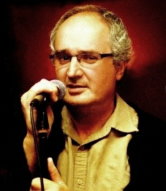You can trust Louder
As Simon Reynolds (the critic who coined the term) had it, post-rock was about using rock instrumentation for non-rock purposes, using guitars as facilitators of timbre and textures rather than riffs and power chords.
And so it is on Hex: the seven tracks contained on this 1994 album may come to occasional stops and refrains, the vocals whispered/lullabied like a bevy of saddened, friendless Talk Talk and AR Kane fans, but throughout there is a determination not to be weighed down by heedless expectation: this music, while symphonic in structure, exists within the moment and the moment alone.
Moments like the crystalline tumbles of sound washing across the middle section of Absent Friend feel both haunting and captivating: an overcoat of rock instrumentation perhaps, but with the feel and lineage of ambient dance music or a Philip Glass. Or even Mike Oldfield’s Tubular Bells.
Throughout the entirety of Hex, the mood captured is one of rain-splashed, neon-reflecting deserted city streets: down but not depressed. Urban anguish.
A direct line can be traced between the spellbinding, meandering, mesmerising music here back to the roots of avant garde electronica, minimalist classical and 1980s synth-pop, and forward to bands such as Sigur Rós, Godspeed You! Black Emperor, Mogwai and Tortoise (among many others).
Hex was Bark Psychosis’s final moment (and debut album): although the band disintegrated soon afterwards. The mark they left is indelible.
Sign up below to get the latest from Classic Rock, plus exclusive special offers, direct to your inbox!
Everett True started life as The Legend!, publishing the fanzine of that name and contributing to NME. Subsequently he wrote for some years for Melody Maker, for whom he wrote seminal pieces about Nirvana and others. He was the co-founder with photographer Steve Gullick of Careless Talk Costs Lives, a deliberately short-lived publication designed to be the antidote to the established UK music magazines.


